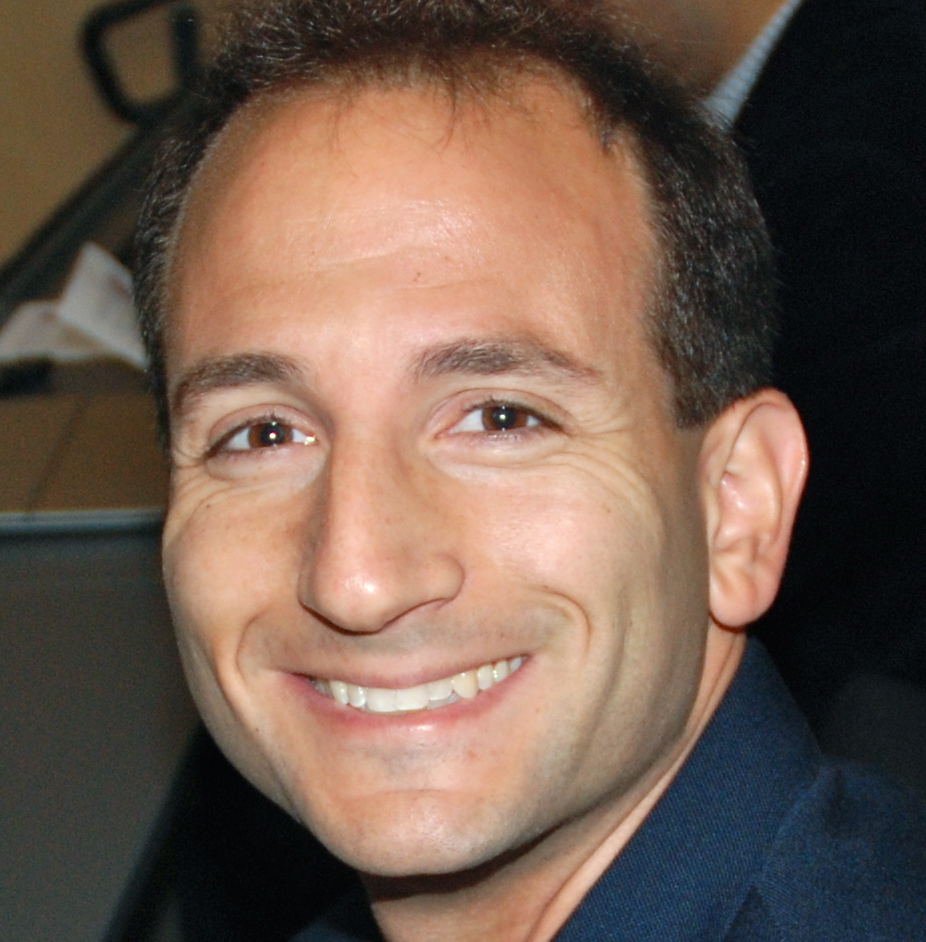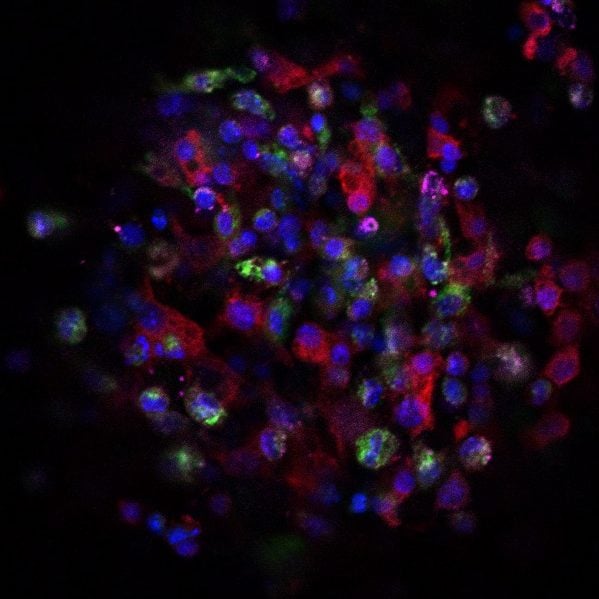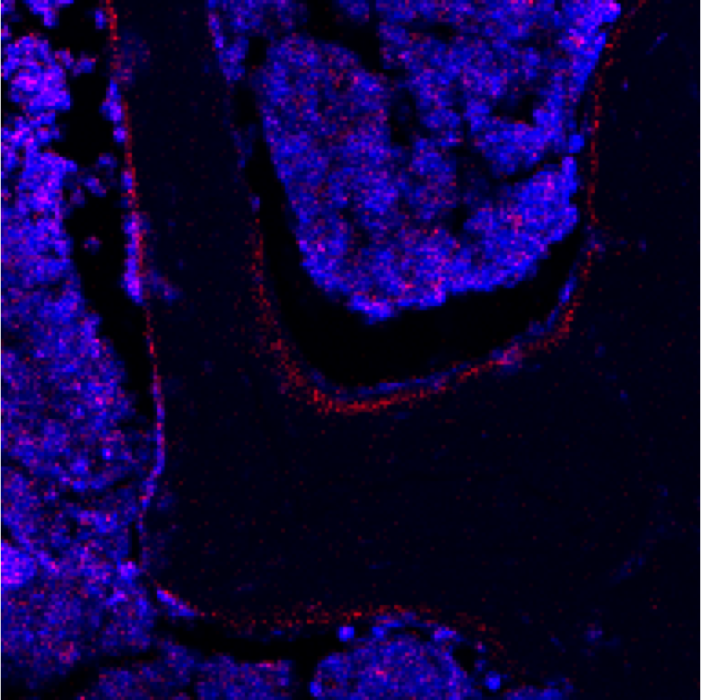
Lab Mission
Welcome to the Doloff Lab for Immunoengineering and Regenerative Medicine. Our mission is to explore the intersection between therapeutics, whether biologic or synthetic in origin, and living systems to better understand what happens when deliverables are introduced into the body and how the host immune system behaves as well as perceives them.

Principal Investigator
Joshua C. Doloff is a newly appointed Assistant Professor in Biomedical Engineering and Materials Science and Engineering at Johns Hopkins University’s School of Medicine. He was previously a Juvenile Diabetes Research Foundation (JDRF) Senior Postdoctoral Fellow in the labs of Robert Langer and Daniel G. Anderson in Chemical Engineering and the David H. Koch Institute at MIT/Children’s Hospital Boston. Full Bio
Faculty Highlight: Meet Joshua Doloff, Assistant Professor of BME
With an interest at the intersection of technology and biology, in this interview, Dr. Doloff describes his eagerness to build research collaborations and provide mentorship to students. He also discusses his “eureka moments,” the research he plans to conduct at Hopkins, and the future of engineering… continue reading
Passion and mentoring are key to the success of the Doloff Lab (JHU News-Letter interview)
As a newly appointed Assistant Professor of Biomedical Engineering and Materials Science at the School of Medicine, Joshua Doloff is not only a research scientist advancing the fields of immunoengineering and regenerative medicine, but also a mentor to students… continue reading
Select Publications
- Doloff JC#, Ma M, Sadraei A, Tam HH, Farah S, Hollister-Lock J, Vegas AJ, Veiseh O, Quiroz VM, Rakoski A, Aresta-DaSilva S, Bader AR, Griffin M, Weir GC, Brehm MA, Shultz LD, Langer R, Greiner DL#, Anderson DG#. 2023. Identification of a humanized mouse model for functional testing of immune-mediated biomaterial foreign body response. Science Advances. Jun 16;9(24). doi: 10.1126/sciadv.ade9488.
- Doloff JC*#, Veiseh O*#, de Mezerville R#, Sforza M, Perry TA, Haupt J, Jamiel M, Chambers C, Nash A, Aghlara-Fotovat S, Stelzel JL, Bauer SJ, Neshat SY, Hancock J, Romero NA, Hidalgo YE, Leiva IM, Munhoz AM, Bayat A, Kinney BM, Hodges HC, Miranda RN, Clemens MW, & Langer R#. 2021. The surface topography of silicone breast implants mediates the foreign body response in mice, rabbits and humans. Nature Biomed Eng. June 21; doc: 10.1038/s41551-021-00739-4.
- Farah S*, Doloff JC*, Mueller P, Sadraei A, Han HJ, Olafson K, Tyas K, Tam HH, Hollister-Locke J, Kowalski PS, Griffin M, Meng A, McAvoy M, Graham AC, McGarrigle J, Greiner DL, Weir G, Oberholzer J, Langer R, and Anderson DG. 2019. Long-term implant fibrosis prevention in rodents and non-human primates using crystallized drug formulations. Nature Materials. Aug;18(8):892-904. doi: 10.1038/s41563-019-0377-5.
- Doloff JC, Veiseh O, Vegas AJ, Tam HH, Farah S, Ma M, Li J, Bader A, Chiu A, Sadraei A, Aresta-Dasilva S, Griffin M, Jhunjhunwala S, Webber M, Siebert S, Tang K, Chen M, Langan E, Dholokia, Thakrar R, Qi M, Oberholzer J, Greiner DL, Langer R, and Anderson DG. 2017. Colony Stimulating Factor-1 Receptor is a central component of the foreign body response to biomaterial implants in rodents and non-human primates. Nature Materials. Mar 20. doi: 10.1038/nmat4866.

Latest News
New humanized mouse model for screening medical implant fibrosis and failure
A team of researchers led by Joshua Doloff, an assistant professor of biomedical engineering, has discovered an advanced “humanized” mouse model to better predict how the human immune system will react to medical implants. Their results appear in Science Advances. …. FULL STORY HERE
Smoothing the Way to Better Breast Implants
Silicone breast implants with a smoother surface design have less risk of producing inflammation and other immune system reactions than those with more roughly textured coatings, according to new research by Joshua Doloff, assistant professor of biomedical engineering, who collaborated with researchers at Johns Hopkins Medicine, MIT, and Rice University on a series of experiments published last June in Nature Biomedical Engineering. …. FULL STORY HERE
Drug Crystals to prevent medical device fibrosis
Implanted medical devices can save lives, but can also put patients at the risk of fibrosis, a condition in which the immune system attacks the device and produces scar tissue around it, interfering with the device’s functionality. Working with researchers at Massachusetts Institute of Technology, Joshua Doloff, an assistant professor of biomedical engineering at Johns Hopkins University and former MIT postdoc, has devised a new way to prevent fibrosis: loading implantable devices with a crystallized immunosuppressant drug… FULL STORY HERE


